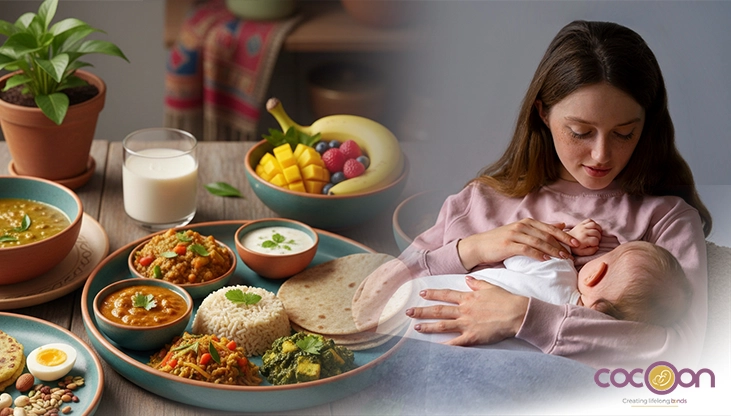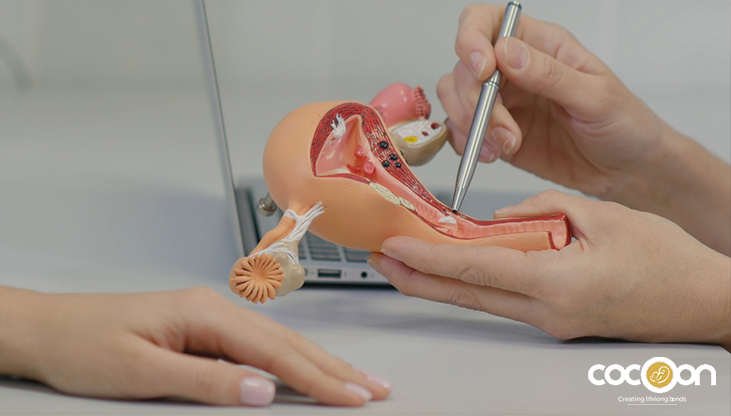Pregnancy is arguably the biggest adventure in a woman's life. Besides proper medical attention and emotional care, a healthily balanced week-by-week pregnancy diet is crucial in maintaining the health of both mother and baby. The foods you consume become the source of building blocks for your baby's growth and development.
A balanced diet aids in the relief of frequent pregnancy discomforts, encourages healthy fetal growth, and enhances maternal resistance.
Why a Weekly Pregnancy Diet Plan Is Important
Pregnancy is not a one-size-fits-all process. Nutritional demands vary with every phase of growth. That's why having a week-by-week pregnancy nutrition chart comes in handy:
- Meets evolving nutrient needs
- Aids in nausea, fatigue, and heartburn management
- Accommodates fetal organ development, brain growth, and development
- Ensures healthy maternal weight and prevents complications of gestation
Following a systematic pregnancy meal planning on a weekly basis ensures a balanced diet that's packed with all the necessary nutrients.
Weekly Prenatal Diet Chart Overview
To keep it simple, we'll break down the diet by trimester, week by week, with advice and example meals. Always, always get your gynecologist or a dietician's approval before changing your diet.
First Trimester (Weeks 1–12): Healing the Foundations
Main Aims:
- Help implantation and organ development
- Fight off nausea and vomiting
- Supply folic acid, iron, and protein
Week 1–4: Pre-conception to Implantation
- Even if you've only just discovered you're pregnant, this first stage is vital.
- Prioritize: Folic acid (400–600 mcg), iron, lean protein
- Consume more of: Lentils, spinach, eggs, oranges, fortified cereals
Sample meal:
- Breakfast: Whole grain toast with peanut butter + orange juice
- Lunch: Spinach dal with brown rice
- Snack: Mixed nuts + banana
- Dinner: Grilled tofu/egg curry with sautéed vegetables
Week 5–6: Conquering Morning Sickness
- Prioritize: Small, frequent meals; ginger, foods that are rich in B6
- Add: Dry crackers, soups, banana, rice, ginger tea
- Steer clear of: Greasy, spicy foods that can exacerbate nausea
Tip: Have a snack within reach of your bed for morning nausea
Week 7–9: Increasing Iron and Hydration
- Iron food items: Beetroot, dates, dry fruits, lean meat
- Add Vitamin C: Citrus fruits to enhance iron absorption
- Hydration trick: Drink coconut water or homemade buttermilk
- Weekly prenatal diet chart idea:
- Breakfast: Steamed idli + tomato chutney
- Lunch: Rajma with roti + cucumber salad
- Dinner: Moong dal khichdi with ghee
Week 10–12: Brain & Spine Foundations
- Key nutrients: Omega-3s, iodine, calcium
- Add: Flaxseeds, walnuts, iodised salt, curd, paneer
Expert tip: Restrict caffeine, raw meats and unpasteurized milk
Second Trimester (Weeks 13–27): Rapid Growth Phase
Main Aims:
- Facilitate baby's bone, muscle, and nervous system development
- Prevent constipation and muscle spasms
- Supply calcium, vitamin D, magnesium, and fiber
Week 13–16: Building the Bones
Best sources: Milk, yogurt, sesame seeds, tofu
Sample meal:
- Breakfast: Methi paratha + curd
- Snack: Almonds handful
- Lunch: Palak paneer + millet roti
- Dinner: Dalia khichdi + carrot salad
Week 17–20: Dealing with Cramps and Fatigue
- Emphasize: Magnesium, potassium, fiber
- Add: Avocados, sweet potatoes, bananas, whole grains
Tip: Use fresh fruit smoothies or soups to ensure energy
Week 21–24: Avoiding Anemia and Swelling
- Increase iron: Chickpeas, raisins, spinach, jaggery
- Decrease swelling: Drink plenty of water, use less salt
- Sample week diet:
- Breakfast: Veggies + lemon with poha
- Lunch: Bajra roti + methi aloo
- Snack: Fresh fruit bowl
- Dinner: Paneer tikka + steamed rice
Week 25–27: Boosting Immunity
- Emphasize: Zinc, protein, antioxidants
- Add: Yogurt, pumpkin seeds, berries, citrus fruits
- Avoid: Junk food, excess sugar, unwashed fruits and veggies
Third Trimester (Weeks 28–40): Preparing for Birth
Main Aims:
- Weight gain and baby's lung development
- Acidity, sleep issues, and fatigue management
- DHA, protein, fiber, and healthy fats supply
Week 28–30: Battling Acidity and Backaches
- Small meals: Eat 2–3 times every hour
- Avoid: Deep-fried, spicy or sour foods
- Add: Coconut water, roasted cumin drinks, curd rice
Week 31–33: Protein Power
- Why: Protein aids fetal tissue development and breast tissue preparation
- Eat: Paneer, chicken, soy, legumes, dairy
- Expert pregnancy diet chart weekly idea:
- Breakfast: Oats porridge with nuts
- Lunch: Rajma with rice + mixed veg sabzi
- Snack: Boiled eggs or sprouts
- Dinner: Veg pulao + curd
Week 34–36: Fat and Fiber Focus
- Healthy fats: Ghee, olive oil, avocado
- Fiber for digestion: Apples, barley, broccoli, prunes
Tip: Add chia seeds to smoothies for fiber + omega-3s
Week 37–40: Preparing for Delivery
- Soft, easily digestible foods: Light khichdi, soups, fruits
- Fluid intake: Herbal teas (check with doctor), water, fruit juices
- Avoid these foods: Pineapple, papaya, too much caffeine, processed meat
Weekly Meal Planning Advice during Pregnancy
Making a weekly pregnancy meal plan is all about balance and variety. Here's how to go about it:
- Plan 3 main meals and 2–3 small snacks per day
- Prep meals on weekends to minimize cooking stress
- Make a batch of dal, sabzi, or parathas and freeze if required
- Use healthy oils: Ghee in moderation, avoid trans fats
- Wash fruits and vegetables well
- Limit salt and sugar
Nutrient Guidelines
| Nutrient | Recommended Daily Amount | Best Food Sources |
| Folic Acid | 400–600 mcg | Spinach, oranges, lentils |
| Iron | 27 mg | Beetroot, jaggery, green leafy vegetables |
| Calcium | 1000 mg | Milk, curd, sesame seeds |
| Protein | 75–100 gm | Eggs, legumes, tofu, lean meat |
| Omega-3 (DHA) | 200–300 mg | Walnuts, flaxseed, fish (only low-mercury varieties) |
| Vitamin D | 600 IU | Sunlight exposure, fortified milk |
What to Avoid During Pregnancy
To keep mother and baby safe, avoid:
- Raw eggs, raw meat or fish
- Unpasteurized dairy
- Alcohol and tobacco
- Excessive caffeine (>200 mg/day)
- Street foods or foods with poor hygiene
When to See a Nutritionist
- You may want to see a professional if:
- You have pre-existing conditions (diabetes, thyroid)
- You are underweight or overweight
- You experience excessive nausea or food aversions
- You require supplementation advice
- You have special diets (vegetarian, vegan, gluten-free)
Conclusion
A well-planned week-by-week pregnancy diet chart can be your greatest support system during pregnancy. With the proper foods, you can enhance your baby's growth, relieve your own symptoms, and prepare for a more comfortable delivery and postpartum recuperation.
By following an expert pregnancy diet chart each week, you will be energized, lower the risk of complications, and feel more in command along the way.
Keep in mind that each pregnancy is different. This weekly prenatal diet chart is a general guideline, so always individualize it with your healthcare provider.

















